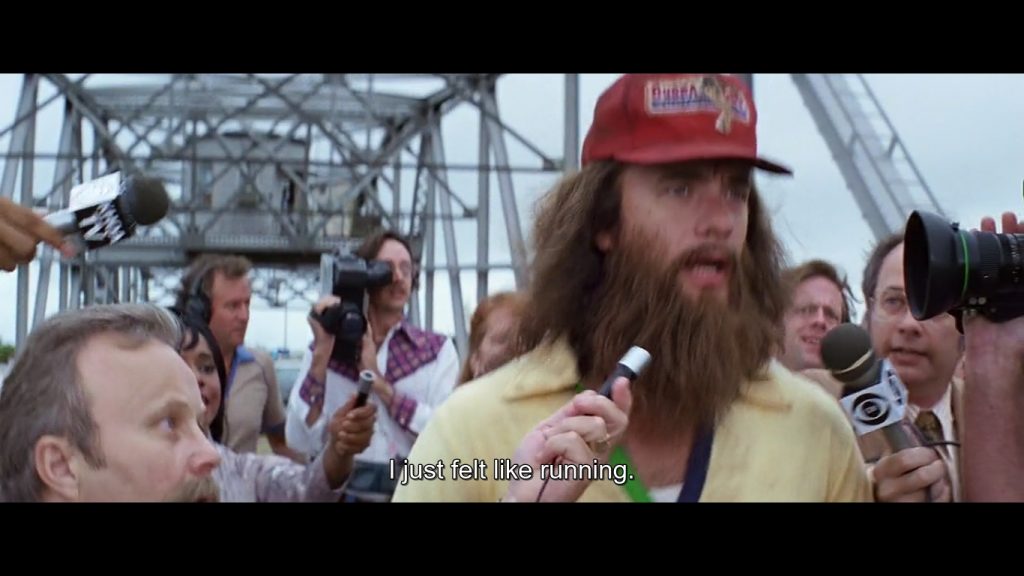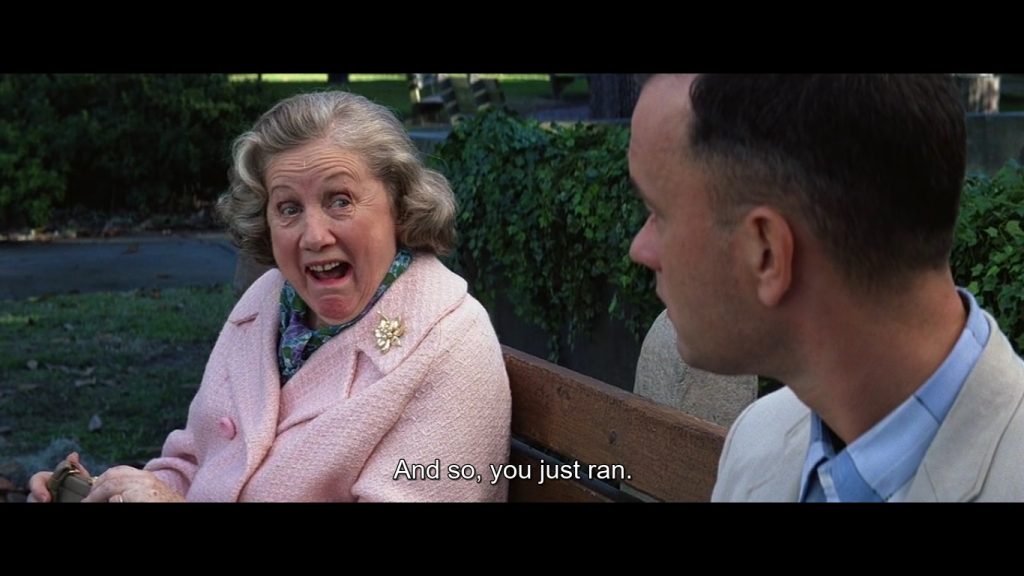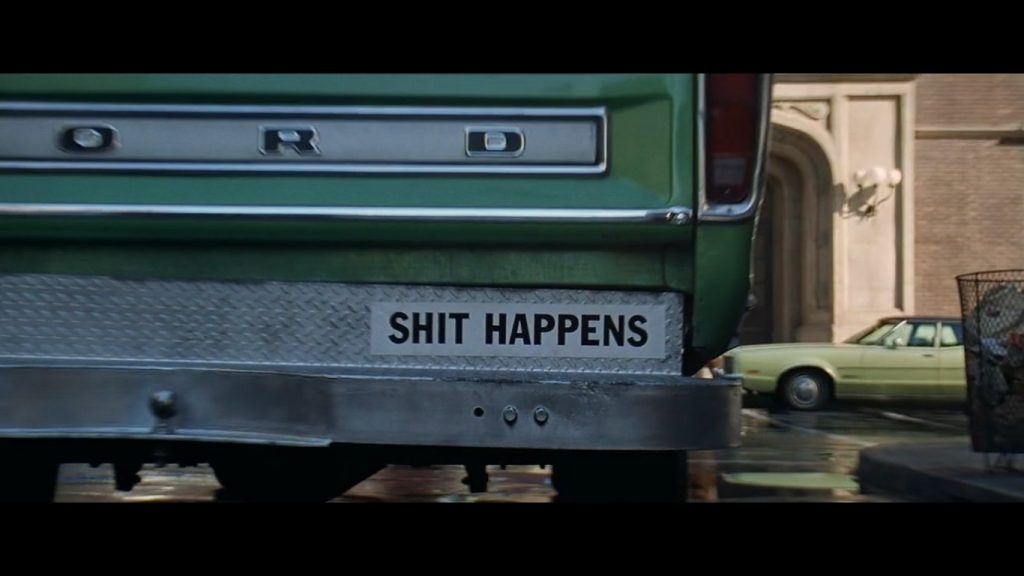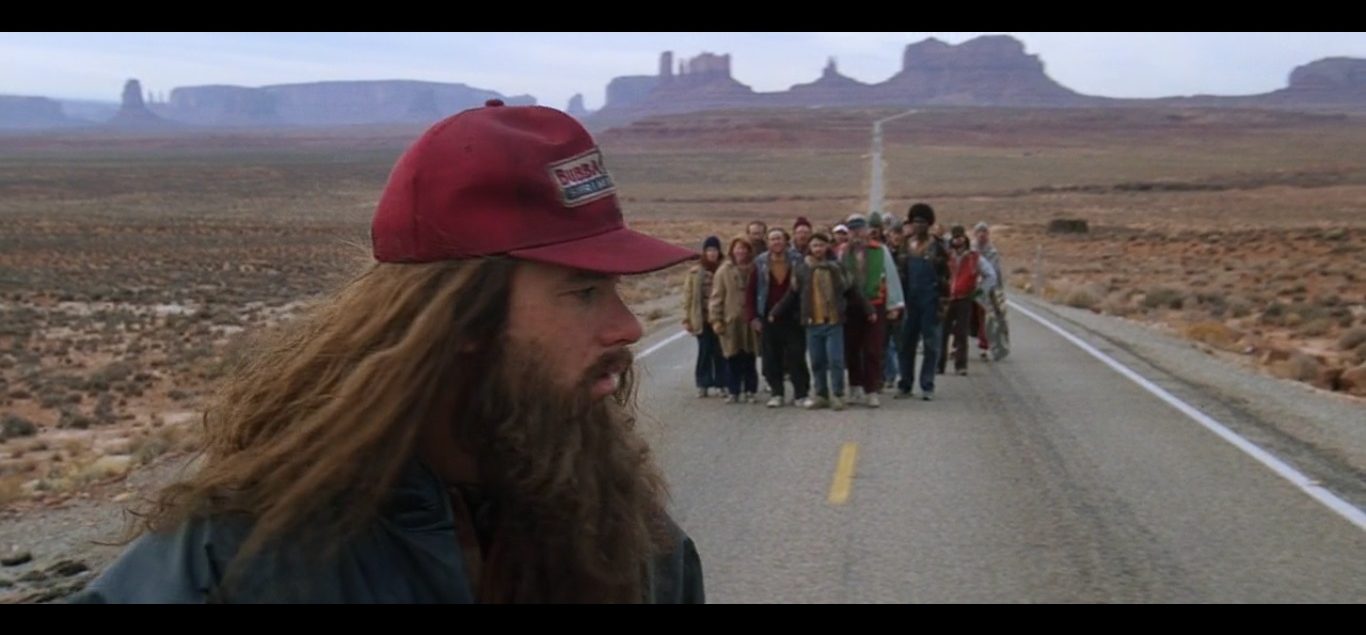A Note On ‘Forrest Gump’
Always and at all times, we’re trying to make sense of everything around us. We want a definition for this. We want a reason for that. We want to know the meaning of colours. We want to know the significance of the types of trees there are. We want to know the direction the wind goes, peradventure we may be able to determine what will happen tomorrow, capture and tame events before they arrive.
Sometimes, and sincerely, these meanings are important to us, or else, we mayn’t be able to appreciate why we have the things we have or do some of the things we do.
But we don’t always have to know the meaning of a thing to appreciate it. Water is drinkable because it’s water and satisfies human’s thirst. Nature is nature because it’s nature, which is what makes it beautiful. A work of art is aesthetic because it’s a work of art, not because it’s didactic, sends a message or ‘speaks volume.’
Four times, in the movie–Forrest Gump–Forrest runs across America, crossing the Mississippi River and other oceans every time he goes.
After two years that he has been running, everyone including the media wants to know his reason for running. They ask, ‘Are you doing this for world peace? Are you doing this for the homeless? Are you running for women’s rights? Or for the environment? Or for animals?’

But he has no reason except that he ‘just felt like running’.
‘They couldn’t believe that someone would do all that running for no particular reason,’ a media personnel reports.
Earlier, the only woman Forrest has loved all his life has come to stay with him briefly and left again as she’s always done. After Jenny leaves, Forrest narrates, ‘That day, I decided to go for a little run. So, I ran to the end of the road. And when I got there, I thought maybe I’d run to the end of town. And when I got there, I thought maybe I’d just run across Greenbow County. And I figured since I’d run this far, maybe I’d just run across the great state of Alabama. And that’s what I did… For no particular reason, I just kept on going.’
But he doesn’t stop there. ‘When I got this far,’ he continues, ‘I ran clear to the ocean. And when I got there, I figured since I’d gone this far, might as well turn around and just keep on going. And when I got to another ocean, I figured since I’d gone this far, I might as well just turn back and keep right on going. When I got tired, I slept. When I got hungry, I ate. When I had to go, you know, I went.’
Amused by his tale, the old woman he’s been narrating his story to declares with a smile, ‘And so, you just ran.’

‘Yeah!’ Forrest exclaims, leaving no emotion on his face.
Soon, people start reading all sorts of meaning to his action and some even start running with him, claiming that his running ‘gave people hope.’
But Forrest doesn’t understand how that could be, ‘I don’t know anything about that,’ he confesses.
Because of his popularity, people bring him questions to answer, about something he knows absolutely nothing about. And when he splutters gibberish, his gibberish becomes their celebrated mantra.

After running for ‘3 years, 2 months, 14 days and 16 hours,’ Forrest stops midway, surprising the people who have been running behind him. But his running partners have high expectations and wait eagerly to hear what he has to tell them.
Instead, Gump simply says, ‘I’m pretty tired. Think I’ll go home now.’
But they can’t believe he’s just going to leave them like that, without any ‘message’ for them and the world. So, they ask,
‘Now what are we supposed to do?’
A question that gets no answer.

